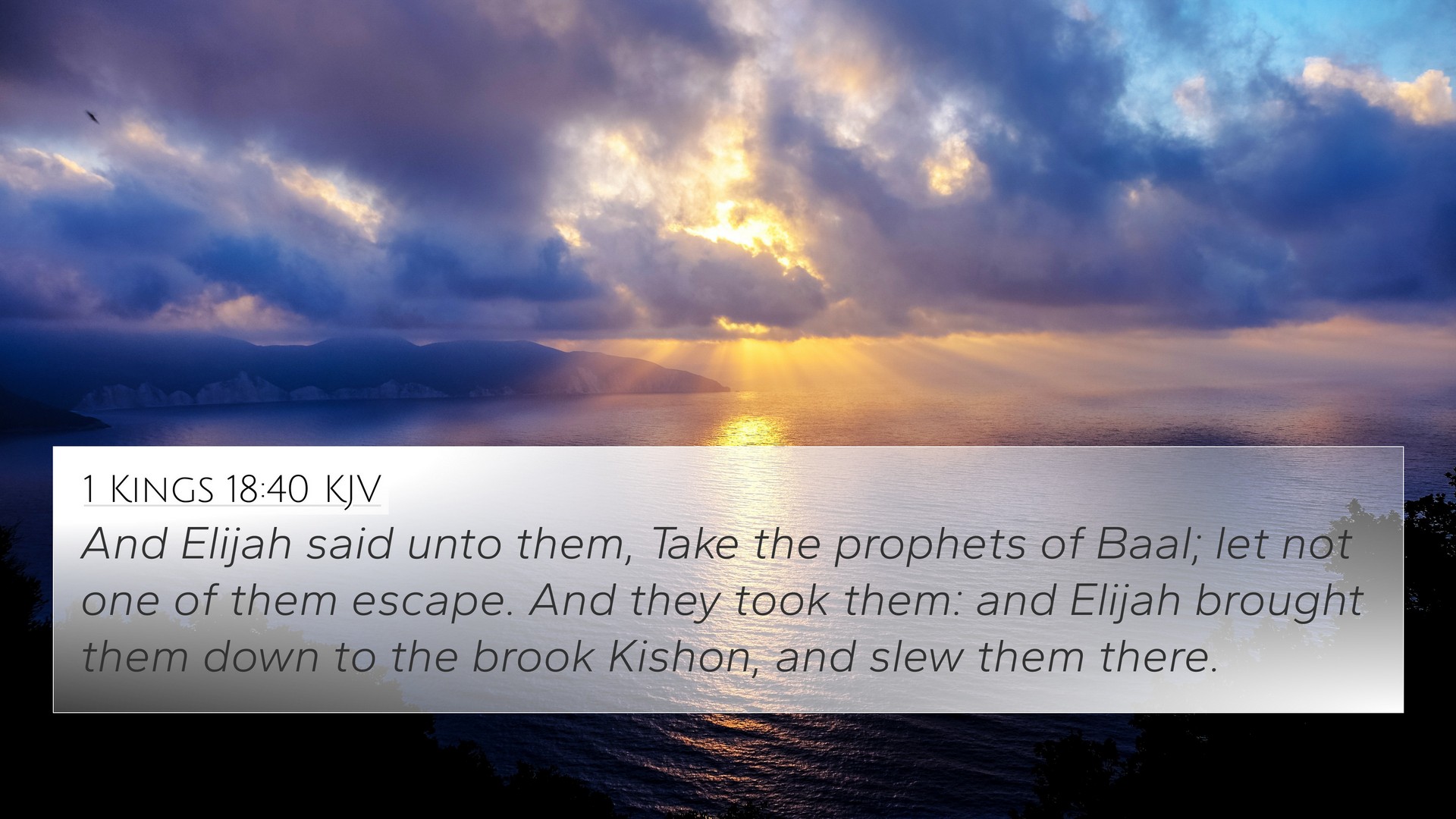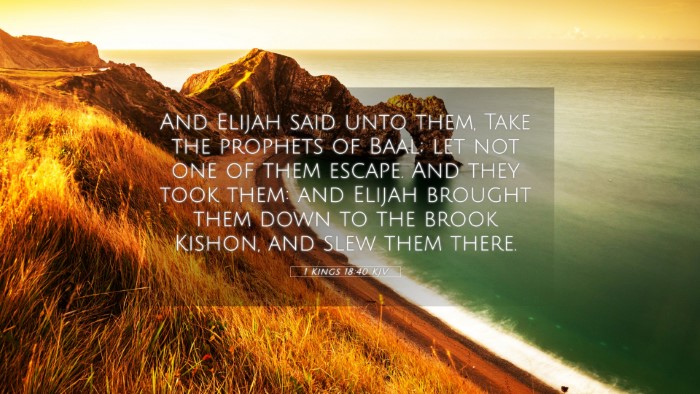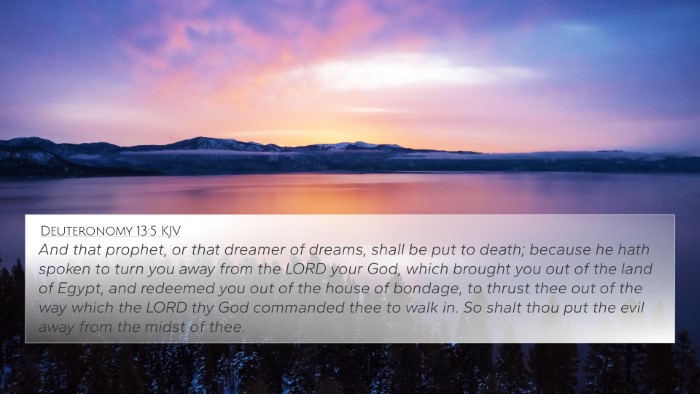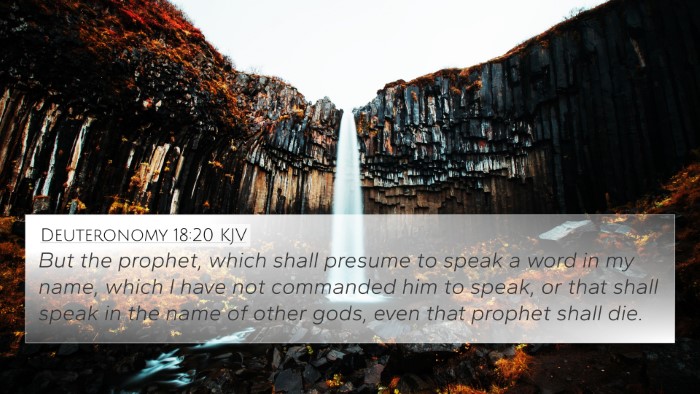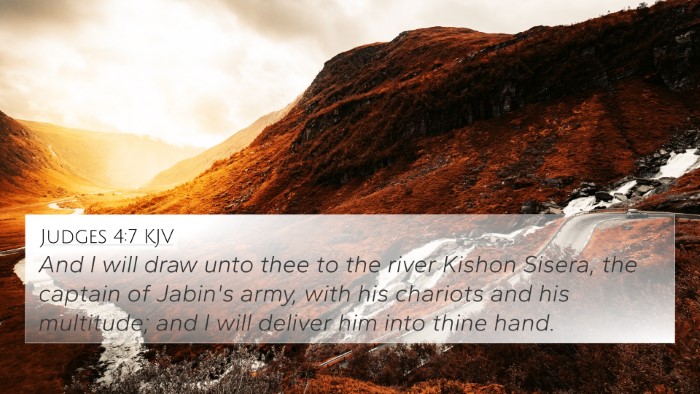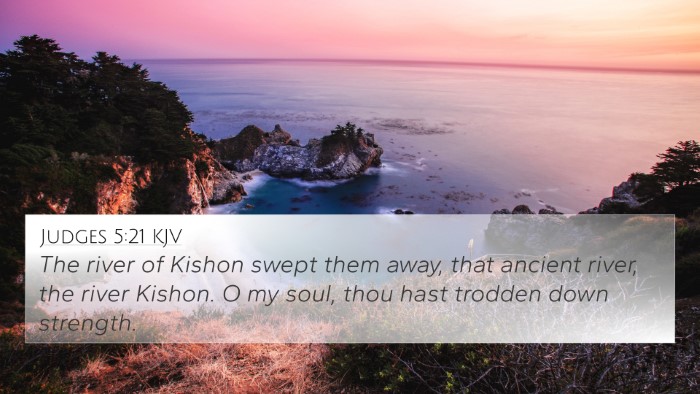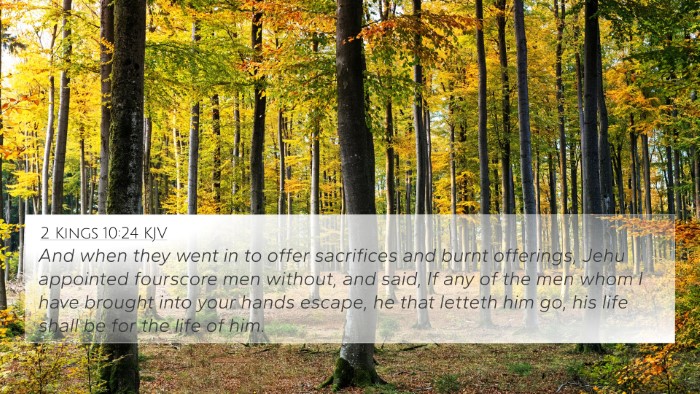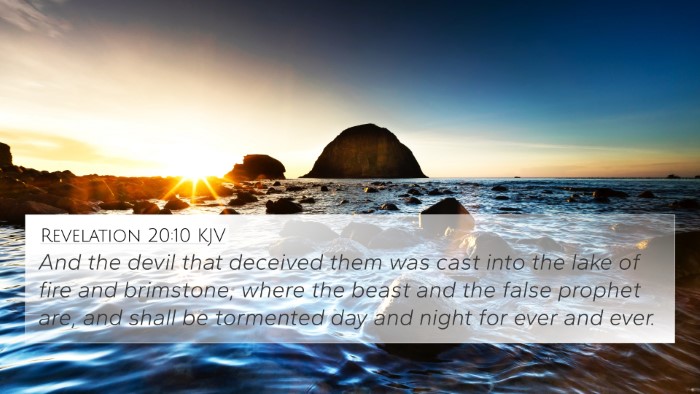Understanding 1 Kings 18:40
Verse: "And Elijah said unto them, Take the prophets of Baal; let not one of them escape. And they took them; and Elijah brought them down to the brook Kishon, and slew them there."
This pivotal verse takes place after the great contest on Mount Carmel, where God revealed His power against the prophets of Baal. Elijah's command to execute the prophets emphasizes God's judgment upon those who lead the people astray and the faithfulness required of His followers.
Commentary Insights
Matthew Henry's Commentary
Matthew Henry emphasizes that this act of judgment was not merely spontaneous but a necessary action to cleanse Israel of idolatry. He notes that the killing of the prophets of Baal underscores the seriousness of idolatry and the commitment required to serve the true God. He reflects on Elijah’s role as a restorer of worship in Israel, and how the act symbolizes the triumph of God over falsehood.
Albert Barnes' Notes
Albert Barnes discusses the significance of the brook Kishon as a location where God’s judgment against Baal was enacted. He mentions that the act was not just a demonstration of power but served as a warning against the consequences of turning away from God. He highlights the importance of being earnest in following the Lord and the need for purification after idolatry.
Adam Clarke's Commentary
Adam Clarke reinforces the historical context of Elijah’s actions by linking them to the broader narrative of Israel's cycle of sin and repentance. He offers a cautionary note on the nature of judgment, stressing that while the prophets of Baal had led Israel astray, God's mercy could also be sought in repentance. Clarke highlights the importance of returning to true worship and the dangers of complacency in faith.
Bible Verse Cross-References
- 1 Kings 18:21 - Elijah challenges the people to decide between God and Baal.
- Deuteronomy 13:1-5 - Laws against false prophets.
- 2 Kings 10:18-28 - The execution of Baal worshippers by Jehu.
- Jeremiah 23:13-14 - Condemnation of false prophets.
- Romans 1:21-23 - Discussion of idolatry and its consequences.
- Matthew 7:15-20 - Warning against false prophets.
- Revelation 19:20 - The ultimate judgment of false prophets.
- Exodus 22:20 - Command against worshipping other gods.
- Isaiah 44:9-20 - The futility of idol worship.
- 1 Corinthians 10:20-21 - Warning against idol worship.
Thematic Connections
This verse can be connected to various themes throughout the Bible, including:
- Judgment against Idolatry: The decisive action taken against the prophets highlights the seriousness of turning away from God.
- Call to True Worship: Elijah's actions bring Israel back to acknowledging the one true God.
- God's Sovereignty: The dramatic defeat of Baal signifies God’s authority over all false gods.
Cross-Referencing Biblical Texts
In the study of the Bible, one can find rich thematic connections through cross-referencing various scriptures. For instance, by using tools for Bible cross-referencing, we can deepen our understanding of how this verse relates to the overarching narrative of Israel's faithfulness or lack thereof.
How to Use Bible Cross-References
In studying this verse, one can explore its links to both the Old and New Testaments. Comparative Bible verse analysis can reveal insights about how idolatry has historically been viewed and God's unyielding stance against it.
Conclusion
The execution of the prophets of Baal is a powerful illustration of God's demand for purity in worship and His intolerance of idolatry. 1 Kings 18:40 serves not only as a historical account but as a theological guide for understanding the importance of fidelity to God and the implications of false worship.
